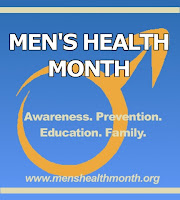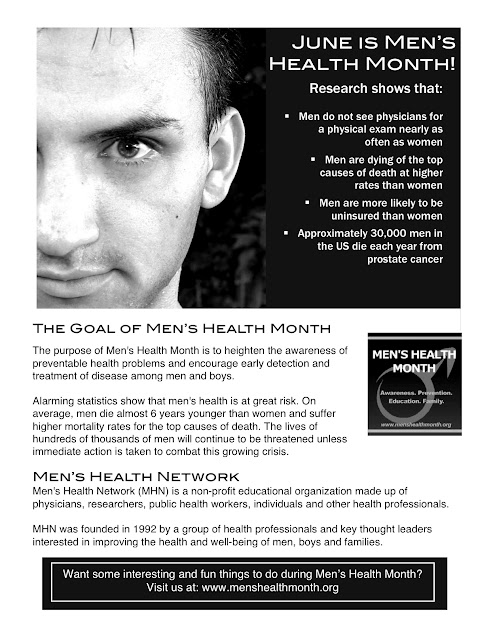 |
| Visit our website here. |
Healthy You!
Staying healthy in a world that is moving too fast.
Thursday, December 6, 2012
Wednesday, August 8, 2012
Everett Physicians Listed
“Western Washington Medical Group is honored that for the second year in a row, Sanjeev Garhwal (Cardiac Electrophysiology), Budge Smith (Cardiology), George Moore (Endocrinology), Mark Gunning (Nephrology), and David Russian (Pulmonology) have been recognized for excellence by their peers,” remarked Jerry Tillinger, CEO of WWMG. “We are proud to see two more members of WWMG, T. Spark Corwin (Urology) and Brian Fong (Urology) added to this prestigious list of dedicated physicians. These physicians have maintained their focus on service and quality despite all the tumultuous changes affecting health care today.”
Physicians for this award were nominated by their peers. Seattle Magazine asked local physicians who they would call if a member of their family was sick. They received responses for nominations for the best physicians in 65 specialties from addiction psychiatry to vascular surgery.
“Western Washington Medical Group allows me to practice no holds barred medicine. We do the right thing for our patients without being locked in by a big system,” Dr. David Russian remarked when told of winning the honor. “Our patients and our colleagues appreciate that approach and the good results.”
“I appreciate the honor very much, and I appreciate Western Washington Medical Group’s insistence on having only truly independent practitioners of the highest quality in their care centers,” Dr. Mark Gunning added.
Western Washington Medical Group focuses on providing a lifetime of health and wellness for their patients. WWMG’s doctors are community members who believe in uncompromising care tailored to their patients’ specific needs. With over seventy providers, WWMG serves the many needs of community members who seek out excellent and personalized medical care. You can learn more about them at www.wwmedgroup.com.
GASTROENTEROLOGY WELCOMES GAURAV AGGARWAL, MD, MS
Western Washington Medical Group (WWMG) Gastroenterology is pleased to announce the addition of Gaurav Aggarwal, MD, MS, to its practice. Dr. Aggarwal joins WWMG on August 16, 2012, and he will be seeing patients at the 4225 Hoyt Avenue Everett , WA
“We are very excited about the arrival of Dr. Aggarwal at a time of growth in our community. He will bring his expertise in the areas of Gastroenterology and Hepatology, helping expand our abilities to serve our community with excellence in a timely fashion,” said Edward Slosberg, MD, WWMG Gastroenterology partner.
Dr. Aggarwal was born in India , where he received his medical degree from Government Medical College Emory University , followed by a fellowship in Gastroenterology and Hepatology at the Mayo Clinic in Rochester , Minnesota
Wednesday, August 1, 2012
August is National Immunization Awareness Month
National Immunization Awareness Month
- August is National Immunization Awareness Month. This observance provides the opportunity to remind the community of the importance of immunization. Make sure that your family and friends are up-to-date on their immunizations.
- In August, parents are enrolling children in school, older students are entering college and adults and the health care community are preparing for the upcoming flu season. This makes August a particularly good time to focus community attention on the value of immunization.
- Vaccines are responsible for the control of many infectious diseases that were once common in this country. Vaccines have reduced and, in some cases, eliminated many diseases that once routinely killed or harmed tens of thousands of infants, children and adults.
- The viruses and bacteria that cause vaccine-preventable diseases and death still exist and can infect people who are not protected by vaccines. Vaccine-preventable diseases have a costly impact, resulting in doctors' visits, hospitalizations and premature deaths. Sick children can also cause parents to lose time from work.
- Maintaining high immunization rates protects the entire community by interrupting the transmission of disease-causing bacteria or viruses. This reduces the risk that unimmunized people will be exposed to disease-causing agents. This type of protection is known as community or herd immunity, and embodies the concept that protecting the majority with safe, effective vaccines also protects those who cannot be immunized for medical reasons.
Source: National Partnership for Immunization (www.partnersforimmunization.org)
Wednesday, June 27, 2012
Tuesday, June 26, 2012
Friday, June 1, 2012
June Is Men’s Health Month
Raise awareness of preventable health problems and encourage early detection and treatment of disease among men by celebrating Men’s Health Month.
Guys, your eating plan is a logical place to start when evaluating your health. One diet does not fit all. Men and women have different nutritional needs and body types. Up to about age 10, caloric needs for boys and girls are about the same, but then puberty triggers change. By following these five steps (and by consulting with a registered dietitian), you'll be on your way to a healthier and possibly longer life.
1. Eat moderate amounts of a variety of foods. No single food has all (or enough) of the more than 40 nutrients you need. That's why variety is so important. Follow My Pyramid to help select what foods and portions you should consume.
2. Choose a diet low in fat, saturated fat and cholesterol. That doesn't mean eliminating meat, butter, cheese or egg yolks from your diet. It means you should diversify and focus on lower-fat foods. Cut the fat by:
· Choosing low-fat or nonfat milk and milk products, lean meat, fish, skinless poultry, fruits, vegetables, whole grains and foods that are baked, broiled, steamed or roasted
· Limiting margarine, butter, oils, shortenings, salad dressing, whole milk, regular cheese, fried foods and rich desserts.
 3. Eat plenty of whole grains, vegetables and fruits. These foods supply carbohydrates and dietary fiber. The typical American man gets barely half the recommended amount of dietary fiber. Men who eat adequate amounts of fiber are less likely to suffer from constipation, hemorrhoids and diverticular disease. These foods also help control blood cholesterol levels and may reduce the risk of colon cancer. Adult men younger than 50 years old should consume 38 grams of fiber daily and men over the age of 50 should aim for 30 grams of fiber daily.
3. Eat plenty of whole grains, vegetables and fruits. These foods supply carbohydrates and dietary fiber. The typical American man gets barely half the recommended amount of dietary fiber. Men who eat adequate amounts of fiber are less likely to suffer from constipation, hemorrhoids and diverticular disease. These foods also help control blood cholesterol levels and may reduce the risk of colon cancer. Adult men younger than 50 years old should consume 38 grams of fiber daily and men over the age of 50 should aim for 30 grams of fiber daily.
4. Shake the sodium and salt habit. Read food labels to find foods that are lower in sodium.
5. If you drink alcohol, moderation is the key. Alcoholic beverages are loaded with calories and offer few nutrients. For men, have no more than two drinks a day for optimal health. A single drink equals 12 ounces of regular beer, 5 ounces of wine or 1.5 ounces of distilled spirits.
Tuesday, May 29, 2012
May is Better Hearing and Speech Month
Dramatic lifestyle improvement found
in patients who start using hearing devices
Many scientific studies in the past have confirmed the negative impacts associated with hearing loss: depression, anxiety and social isolation. However not many studies have shown the positive impacts created by a hearing solution. A new study released in September conducted by the Better Hearing Institute (BHI), shows overwhelming data about how much of a difference hearing devices can make.
The study surveyed more than 2,000 hearing loss patients who use devices to enhance the sense of sound. Of the sample group, 82 percent of patients would recommend hearing devices to their friends and 70 percent reported improved ability to communicate. The data also shows more than four out of five people who use a device to hear better are satisfied with their solution.
“This survey clearly reveals how dramatically people’s lives can improve with the use of hearing devices,” BHI Executive Director Sergei Kochkin, PhD said. "In this comprehensive study of more than 2,000 hearing device users we looked at 14 specific quality-of-life issues and found today’s hearing devices are a tremendous asset to people with even mild hearing loss who want to remain active and socially engaged throughout their lives.”
The study also concluded up to a third of patients saw improvements in their romance, sense of humor, mental, emotional and physical health. Further, roughly 40 percent noted improvements in their sense of safety, self-confidence, feelings about self, sense of independence and work relationships.
These results are the most significant of their kind because they show a clear potential solution to many of the draining feelings patients with hearing loss suffer. Many of the results are attributed to changing technology allowing hearing devices to be much smaller and present less of a societal stigma about wearing devices in day-to-day life. Newly introduced devices are so small they are nearly invisible. The new devices are also more intelligent and offer many improvements over older generation models. BHI’s Kochkin says, the first step to preserving your future enjoyment in life is to make an appointment with a hearing health professional and get your hearing checked.
Source: http://www.betterhearing.org/press/news/Customer_satisfactWWMG's Audiology department is at 3216 Norton Avenue, Suite 102, Everett, WA 98201. You can reach them at 425-252-0895
Subscribe to:
Comments (Atom)










